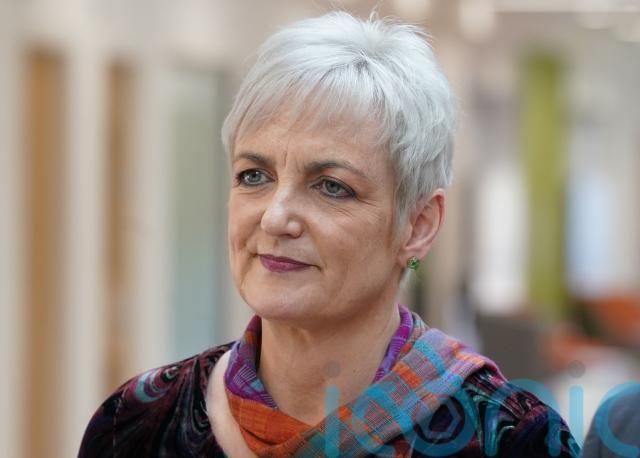
Controversial reforms to Scotland’s legal system are “more of a marathon than a sprint”, the Justice Secretary said, amid concerns some lawyers could boycott plans to put rape accused on trial without a jury.
MSPs have just started scrutiny of Scottish Government legislation which would, if passed, set up a time limited pilot project where those accused of rape could be tried by a judge alone.
However with members of the Glasgow Bar Association having previously threatened to boycott such trials, Angela Constance was questioned about how she would persuade lawyers to take part.
The result of our recent survey of members was overwhelmingly in favour of boycotting the single judge pilot court. We will now discuss matters with the other Faculty Heads in the hope that a national position and strategy can be agreed.
Updates will follow
— Glasgow Bar Association (@GlasgowBarAssoc) May 4, 2023
Conservative justice spokesman Russell Findlay asked her if ministers plan to implement the change and “hope for the best”.
He added that with juries being made up of randomly selected members of the public, they could be “better at reaching a decision than a Scottish judge alone”.
Mr Findlay highlighted that judges are “predominantly late middle aged, white males who went to the same handful of universities, often privately educated and often live in the same affluent parts of Scotland”.
Ms Constance said research has indicated the “diversity of juries did not overcome the prevalence and power of rape myths” in trials.
Asked about the threat of boycotts by the legal profession, she said it is “no surprise to me there are a range of views” about the change – which is included in the Victims, Witnesses and Justice Reform (Scotland) Bill.
The minister said she had spent the summer talking to lawyers, particularly criminal defence lawyers, about the changes being proposed, adding this had been “very helpful in terms of understanding better the nature of their particular concerns around the pilot”.

Ms Constance told Holyrood’s Criminal Justice Committee: “All I would really emphasise is that no part of our system is exempt from change.
“I recognise change can be difficult, it can be challenging, and of course members of the legal profession are entitled to their view, they will be part of the debate.”
But with Holyrood not expected to have its final vote on the measures in the Bill before this time next year, she added: “I just think we all need to be giving each other a bit of time, a bit of space, having the debate and trying to work together.
“Because we all share that common goal, we all want guilty people to be convicted and not guilty people to walk free, and we all want the experience complainers have in our court system to be better.
“The journey we’re on, I would describe it as more of a marathon than a sprint.”
The Bill also proposes to scrap Scotland’s controversial not proven verdict, and to reduce the number of people on juries from 15 to 12 – bringing the system in line with many other countries.
The changes would also introduce the requirement that at least eight jurors would need to support a guilty verdict for a conviction.
Labour’s Katy Clark raised concerns this could lead to fewer people being convicted in the courts.
Ms Constance said the package of changes are “not designed either to increase or decrease” the number of convictions.
With research having indicated getting rid of the not proven verdict alone could result in more people being found guilty, the Justice Secretary told MSPs the requirement for a two-thirds majority to support conviction had been brought in to “balance the change in the verdicts”.
Subscribe or register today to discover more from DonegalLive.ie
Buy the e-paper of the Donegal Democrat, Donegal People's Press, Donegal Post and Inish Times here for instant access to Donegal's premier news titles.
Keep up with the latest news from Donegal with our daily newsletter featuring the most important stories of the day delivered to your inbox every evening at 5pm.